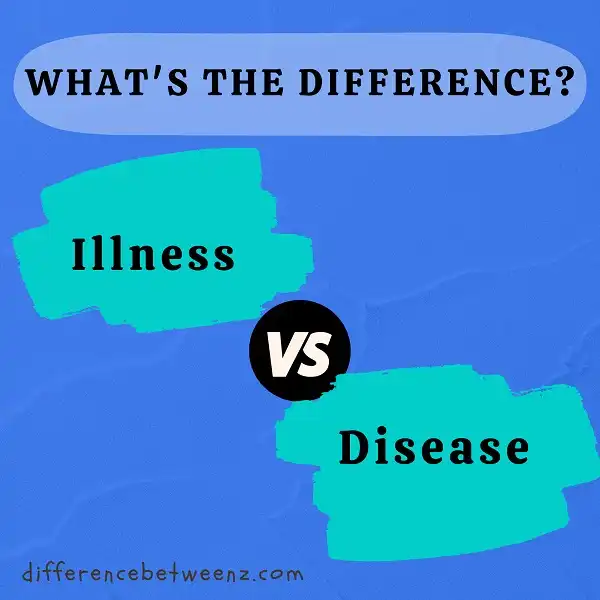When most people hear the words “illness” and “disease,” they automatically think of them as being one and the same. However, there is actually a big difference between the two terms. An illness is simply an impairment of bodily function that can be caused by a variety of factors, such as injury, infection, or lifestyle choices. A disease, on the other hand, is a particular condition that affects the body and is characterized by specific symptoms. In many cases, diseases can be treated with medication or surgery, while illnesses may only require rest and time to heal.
What is Illness?
Illness is a general term that refers to a wide range of physical and mental health conditions. It can be used to describe everything from a common cold to more serious conditions like cancer. Illness can also refer to mental health conditions such as depression or anxiety. While there is no one cause of illness, there are some risk factors that can increase your chances of developing an illness. These include genetics, lifestyle choices, and exposure to certain environmental factors. symptoms of illness vary depending on the condition but can include things like fatigue, pain, and difficulty concentrating. If you think you may be ill, it is important to see a medical professional for diagnosis and treatment. Illness can be difficult to cope with, but with proper treatment and support, many people are able to manage their condition and lead happy healthy lives.
What is Disease?
A disease is a disorder of structure or function in a human, animal, or plant, especially one that produces specific symptoms or that affects a specific location and is not simply a direct result of physical injury. A disease may be caused by external factors such as pathogens or by internal dysfunctions. The study of disease is called pathology, which includes the study of cause. The disease is often used more broadly to refer to any condition that causes pain, dysfunction, distress, social problems, or death to the person affected, or similar problems for those in contact with the person. In this wider sense, it sometimes includes injuries, disabilities, disorders, syndromes, infections, isolated symptoms, deviant behaviors, and atypical appearances that affect the health of an individual. Diseases can affect not only physical health but also emotional and/or mental health.
Difference between Illness and Disease
The terms “illness” and “disease” are often used interchangeably, but there is a distinct difference between the two. Illness is a general term that refers to any type of physical or mental condition that causes discomfort or distress. Disease, on the other hand, is a specific type of illness that is caused by an underlying medical condition. Whereas illness can be cured, the disease is chronic and cannot be completely cured, though it can often be controlled with treatment. Because of this, the disease is more serious than illness and typically requires ongoing medical care. Whether someone is suffering from an illness or a disease, it is important to seek professional help if the condition is causing significant impairment or distress.
Conclusion
In conclusion, it is important to understand the difference between an illness and a disease. The disease is a pathological process that affects one or more organs in the body while illness refers to physical or psychological symptoms that may occur as a result of the disease. While both are serious, diseases can often be treated and cured while illnesses are more difficult to manage.


